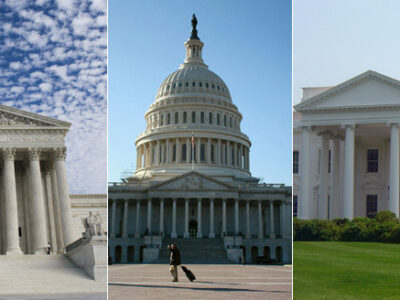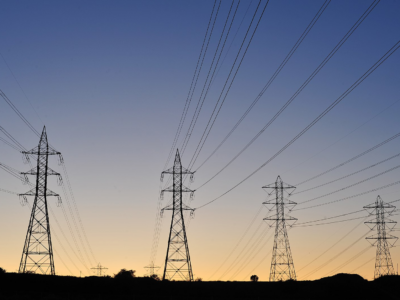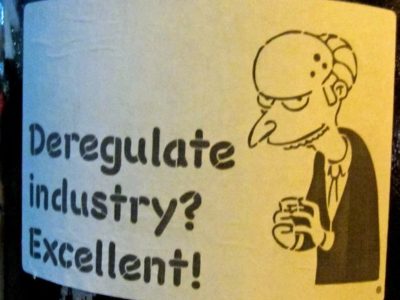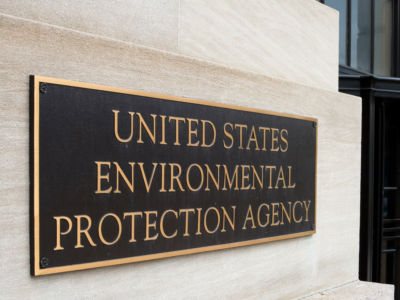Regulatory Policy
Permitting Reform as Policy Stability
Compromise Congressional legislation could dampen the swings of Presidential regulatory policy
I’ve noted earlier the problems that rapid swings in regulatory policy at the Presidential level have caused over the past 12 years, swinging from Obama to Trump I to Biden to Trump II. And, as in so many other ways, the second Trump Administration is ramping up the swings to a whole new level, with …
Continue reading “Permitting Reform as Policy Stability”
CONTINUE READING100 Days of Anti-Environmental Mayhem
A flood of anti-environmental initiatives threatens to undo decades of progress.
the Administration has withheld funding for clean technology, denounced the very idea of environmental justice, and begun a campaign to gut environmental agencies. And that’s only the first hundred days of Trump’s second term.How far Trump gets with this anti-environmental jihad will depend partly on the courts but mostly on politics. Events relating to the economy and provision of basic government services are likely to have as much impact on how things play out than anything specific to the environment.
CONTINUE READINGWhat if DOGE Came for the NFL?
This is what it looks likes like when DOGE takes on a new task.
We know what DOGE is doing to the government. But why stop there? What if they got loose on another part of U.S. society, professional sports? Here’s a picture of what that could look like. June 2026 June 30. New Trump Order: DOGE to Fix Football (NY Times) Trump on Truth Social: “Too long have …
Continue reading “What if DOGE Came for the NFL?”
CONTINUE READINGCorroding the Separation of Environmental Powers
“Who decides?” is the first question to ask about a policy issue. Trump’s answer is “me.”
Biden took actions that federal courts ruled exceeded statutory authority, raised separation of powers issues, or threatened federalism. The difference is that Trump has used brute-force attacks on agencies plus extortion against states rather than taking overt legal actions that courts can review.
CONTINUE READINGTransmission Tangle, Transmission Tango
A new report maps out recent federal actions to improve planning for future electric transmission
On the macro level, just about everyone is a big fan of a rapid, aggressive build-out of new long-distance electric transmission lines – to help meet the anticipated rapid growth in demand for electricity due to the electrification of transportation and energy use in buildings, and the growth of AI. In addition, new big bulk …
Continue reading “Transmission Tangle, Transmission Tango”
CONTINUE READINGRegulatory Rollbacks: What to Expect
A replay of 2017? Or maybe something more radical? You can probably guess the answer.
Repealing and replacing existing environmental regulations will have a lower priority in this iteration of the Trump presidency – it will often be easier to just ignore the existing regulations or eliminate the regulators rather than the regulations. When it does rollback regulations, the administration will probably take more extreme legal positions and will be more likely to make constitutional arguments against environmental regulation.
CONTINUE READINGThe Downsides of Ping Pong Governance
Judicial review, by moderating policy swings, may be important to facilitating long-term investment
I’ve written about debates over permitting reform and other versions of regulatory streamlining to support the development of infrastructure that we need to address climate change. Another view, well articulated by Nicholas Bagley at University of Michigan, is that the problem is more fundamental: Excessive focus on governmental procedures and process, reinforced by searching judicial …
Continue reading “The Downsides of Ping Pong Governance”
CONTINUE READINGLives in the Balance: Infectious Disease and the Trump Administration
The Administration has made serious inroads on safeguards against infectious disease.
Disease control, like many other traditional government activities, has been under a MAGA-driven onslaught. Indeed, we cannot rule out the risk that rather than helping, the government will try to block the use of lifesaving vaccines.
CONTINUE READINGDissecting the Attacks on the Endangerment Finding
EPA has identified four different arguments against the endangerment finding. None have merit.
In late 2009, EPA made a formal finding — often called the Endangerment Finding —that greenhouse gases may endanger human health and welfare. Undaunted by the overwhelming scientific evidence in favor of that finding, the Trump EPA plans to reconsider that finding. Few independent observers believe EPA will succeed, but the issue is important enough to warrant a close look. Here’s a deep dive.
CONTINUE READINGWhat is Life Like Inside Trump’s EPA?
Three EPA employees talk about DOGE, work anxiety, regulatory rollbacks, and the impact on protecting health and the environment.
The new head of the U.S. the Environmental Protection Agency — whose mission is to protect human health and the environment by developing and enforcing regulations — this week made what he proudly called the “largest deregulatory announcement in history” in the form of nearly three dozen policy reversals and “reconsiderations.” EPA Administrator Lee Zeldin’s …
Continue reading “What is Life Like Inside Trump’s EPA?”
CONTINUE READING










